The truck unloader is an indispensable automated handling equipment in modern industrial systems. Its core mission is to replace traditional manual loading/unloading methods, enabling rapid and safe cargo transfer from transport vehicles to storage or production lines. According to the Material Handling Institute (MHI) 2023 report, this equipment can reduce unloading time for 40-foot standard containers from 2-3 hours (manual operation) to 15-30 minutes, achieving 12x efficiency improvement. Its applications cover three main cargo types: bulk materials (grain, ores, sand, etc.), standard packaged goods (containers, palletized items), and special-shaped cargo (liquid tanks, wind turbine blades, etc.). Through modular design, it adapts to various scenarios including corrosion-resistant models for ports, explosion-proof models for grain silos, and mobile versions for construction sites, serving as a critical node in modern smart logistics systems.
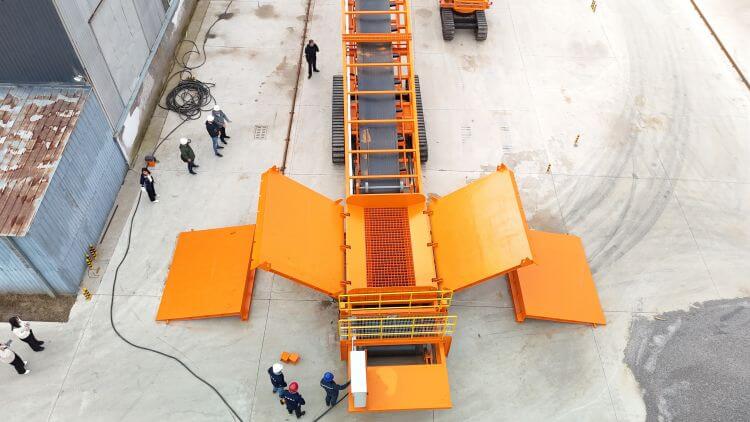
Core Functions of Truck Unloaders
Intelligent Loading/Unloading System
-
3D Scanning and Positioning:
Utilizes Time-of-Flight (TOF) LiDAR to complete 3D cargo space modeling within 0.5 seconds (±3mm accuracy). When handling bagged fertilizers, the system automatically identifies stacking gaps and optimizes grasping paths. -
Adaptive Grasping Mechanisms:
Configurable end-effectors for different materials:- Vacuum suction cups: For boxes/bags (2.5kPa suction force)
- Electromagnetic grabs: For metal scraps (1.8T magnetic flux density)
- Flexible grippers: With force feedback sensors (≤5N contact pressure)
-
Energy Management:
Electric models feature regenerative braking (18% energy recovery); Hydraulic models use load-sensing pumps (40% idle power reduction)
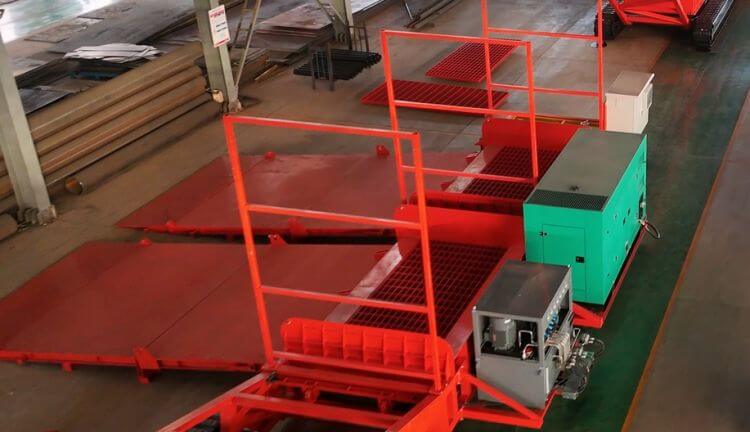
Safety Protection System
-
Predictive Protection:
- Millimeter-wave radar monitors 15m range
- AI predicts movement trajectories (2-second anticipation)
- Triggers alarms when personnel enter 5m danger zone
-
Process Protection:
- Strain gauges monitor structural stress
- 10% overload triggers speed reduction; 30% causes shutdown
- Dust monitors maintain PM2.5 <50μg/m³
-
Emergency Protection:
- Dual-circuit hydraulic braking (<80ms response)
- Mechanical locks engage after emergency stop
- Manual release valves enable power-off disengagement
Please contact us using the info below if you have any questions about Truck Unloader
- Zoomry official website
- +86 131-6401-6717
- oversea@zoomry.cn
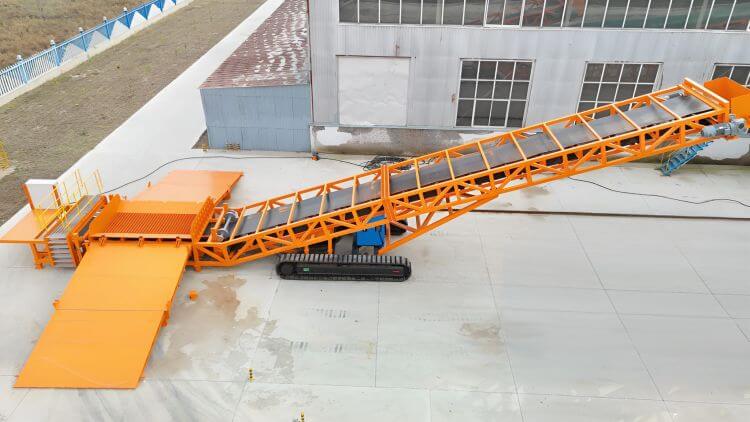
Equipment Types and Technical Principles
| Type | Working Principle | Suitable Materials | Efficiency Range |
|---|---|---|---|
| belt conveyor Type | Adjustable-angle conveyors | Boxed goods/pallets | 200-500 boxes/hour |
| Vacuum Type | Negative pressure pneumatic | Powders/granules | 50-300 tons/hour |
| Screw Conveyor Type | Rotating auger propulsion | Grains/seeds | 100-800 tons/hour |
| Robotic Arm Type | Multi-axis robotic handling | Irregular-shaped items | 20-60 pieces/minute |
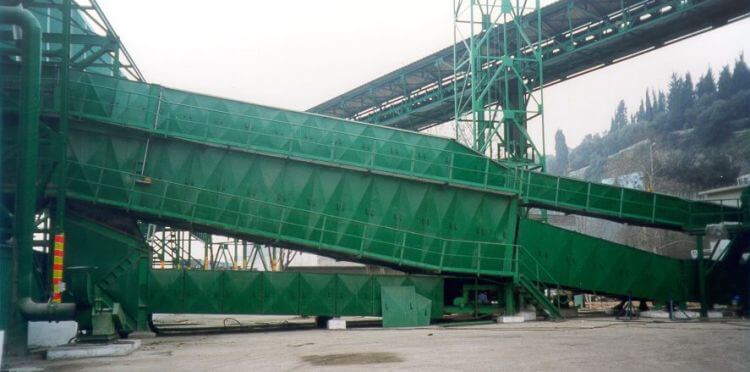
Zoomry`s truck unloader Application Cases
Port Container Terminals
In mega-ports handling 10M+ TEUs annually:
-
Challenges:
- Salt spray corrosion (ISO 9227 C5-M certification required)
- 20-hour daily operation (MTBF >2,000 hours)
- Intermodal coordination with straddle carriers/rail cranes
-
Solutions:
- 316L stainless steel + fluorocarbon coating (<0.01mm/year corrosion)
- 5G-enabled millisecond response (60 forty-foot containers/hour)
- Supercapacitor energy storage (300kW peak power)
-
Results:
- Ningbo-Zhoushan Port: 22% reduction in vessel dwell time
- Cost/TEU: $5.2 → $1.8
- Carbon intensity: 1.1kg CO₂/TEU
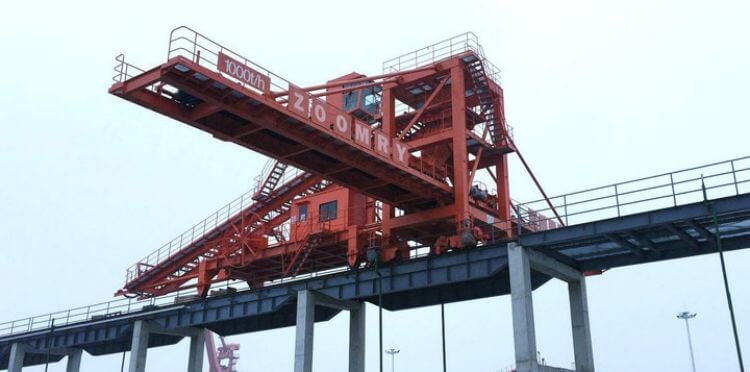
Grain Storage Systems
-
Technical Requirements:
- Explosion-proof design (ATEX Zone 21, 0.1mg/m³ dust monitoring)
- UV sterilization (>99.9% pathogen inactivation)
- Moisture control (±0.3% accuracy)
-
Optimized Process:
- Automated weighing (0.05% error)
- Grain sampling (300 kernels/second analysis)
- Pneumatic transfer (6-8m/s velocity)
- Auto-leveling (35°±2° stacking angle)
-
Case Study:
- Sinograin Zhengzhou Depot: 12,000 tons/day wheat handling
- Breakage rate: 0.8% → 0.12%
- Staff reduction: 15 → 3 per shift
New Energy Equipment Manufacturing
-
Innovations:
- Adaptive clamping for 5m-diameter/80-ton wind tower sections
- Laser tracking (±1mm positioning)
- Polyurethane cushioning (<50kPa surface pressure)
-
Protocols:
- Auto-lock at 8m/s wind speed
- 5% center-of-gravity deviation alert
- Digital ID traceability
-
Outcomes:
- Jiangsu Wind Farm: 4x blade handling efficiency
- Damage rate: 1.2% → 0.05%
- Storage density: 300% improvement

 ZOOMRY
ZOOMRY

